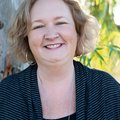
Plagues, Epidemics, and Culture: Histories of Crisis and Care
Arizona State University
Goal
These talks will address how we might draw lessons and envision equitable futures of care for our own local and global communities.
Members
-

Cora Fox, PhD
Organizer/ Contact
-

-

-

-

-

-

Michael Fitzgerald, PhD
-

-

About this Event
The COVID-19 pandemic has already started to permanently reshape our world and has thrown into sharp relief the networks of care that support human flourishing, as well as those structures that are inadequate and unjust.
But it is not the first or the only disease outbreak that has threatened human health and disproportionally affected those already disadvantaged by established institutions and networks of care.
Engaging with scholars focused on the histories and representations of epidemics, this series will explore what can be learned from historical changes in the cultures of care that arose from those crises. Speakers will also address how histories of bias, racism and colonialism are intimately bound up in the history of epidemics.
These talks will address how we might draw lessons and envision equitable futures of care for our own local and global communities.
These online events are free and open to the public, but pre-registration is required.
SCHEDULE
PART 1, "Contagion: COVID-19, the Outbreak Narrative, and Why We Need to Change the Story," with Priscilla Wald | Mon., Aug. 31, 12:00-1:00 PM
ASU Faculty Co-host: Marlon Bailey
COVID-19 is the name of a pathogen — a disease-causing microbe — but if it is a “newly emerging infection,” it is also a newly emerging, though familiar, story: the latest version of “the outbreak narrative.”
Priscilla Wald is R. Florence Brinkley Professor of English and Professor of Gender, Sexuality and Feminist Studies at Duke University. She is the author of "Contagious: Cultures, Carriers, and the Outbreak Narrative" (Duke University Press 2008) and "Constituting Americans: Cultural Anxiety and Narrative Form" (Duke University Press 1995). She is currently at work on a monograph entitled "Human Being After Genocide."
PART 2, "Lessons from Plague-Time London," with Rebecca Totaro | Wed., Sept. 2, 12:30-1:30 PM
ASU Faculty Co-host: Ian Moulton
Rebecca Totaro is Associate Dean of Curriculum and Assessment and Professor of English, Florida Gulf Coast University. A book series editor for Penn State University Press, Totaro is also the recipient of the Monroe Kirk Spears Award for her essay "Securing Sleep in Hamlet,” and she is author and editor of five books, four of them on bubonic plague in Shakespeare’s England.
PART 3, "Disease, Colonialism and Genocide in American Indian History," with Jeffrey Ostler | Mon., Sept. 14, 3:30-4:30 PM
ASU Faculty Co-host: Angela Gonzales
Jeffrey Ostler is Beekman Professor of Northwest and Pacific History at the University of Oregon. He is the author of "The Lakotas and the Black Hills: The Struggle for Sacred Ground" (Viking, 2010) and "Surviving Genocide: Native Nations and the United States from the American Revolution to Bleeding Kansas" (Yale, 2019).
PART 4, "Medicalizing Blackness: Lessons from the 18th-century American Atlantic," with Rana Hogarth | Wed., Sept. 23, 2:00-3:00 PM
ASU Faculty Co-host: Annika Mann
Rana Hogarth is associate professor of history at the University of Illinois at Urbana Champaign. She holds a Ph.D. in History, with a concentration in History of Science/History of Medicine from Yale University; an M.H.S. in Health Policy from the Johns Hopkins Bloomberg School of Public Health.
Her research focuses on the creation of ideas about racial difference in North America and the Caribbean as they emerged through the language of medicine and its allied fields. Her scholarship highlights how the professionalization of medicine and the production of scientific knowledge in the Americas was bound up with the making of race. Her research intersects with African American History, History of Science, History of Medicine and Atlantic World History. Her first book, "Medicalizing Blackness: Making Racial Difference in the Atlantic World, 1780," (University of North Carolina Press, 2017) examines how white physicians defined blackness as a medically significant marker of difference in slave societies of the American Atlantic. Her research has appeared in journals such as "Social History of Medicine," "American Quarterly," "African and Black Diaspora: An International Journal" and the "American Journal of Public Health."
FORMAT
- 5-minute introduction
- 20-minute presentation of research by invited guest
- 20-minute Q&A with ASU faculty host
- 15-minute Q&A with attendees
There is no recent activity